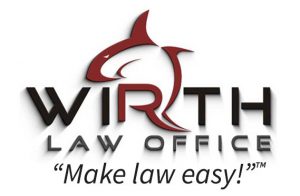Contact an Experienced Attorney When Assistance Needed
Video Transcribed: Expungement of a dismissed felony charge in Oklahoma. I’m Oklahoma Attorney James Wirth, and I’m about to talk about how to get, and when you’re eligible to get, a dismissed felony charge expunged and sealed in Oklahoma.
All right, so most expungement law comes from one statute, Title 22 section 18. And then there are multiple subsections therein, regarding charges that are dismissed. So the first one we’ll talk about is subsection one. In that subsection, it talks about if you’re acquitted.
So if you’re charged with a felony, you go to trial and ultimately you’re found not guilty, at that point, that triggers the statute. You’re eligible to get it expunged, you can file a section 18 complete expungement, that expunges both the arrest record and the court case. Under Oklahoma law, once you have a section 18 expungement by the law, those events never occurred.
So the next situation we’re talking about, is if it’s overturned on appeal. So if you’re convicted at trial on a felony, and then it goes up on appeal and then it’s reversed, and the conviction goes away at that point based on it being reversed and overturned, then you’re eligible under the statute to get a complete expungement.
Next opportunity for that, if you’ve got a felony charges that were dismissed is under subsection three, and that deals with no … Well, I should say this is a little bit different. Charges are not filed under these circumstances. So this is if you’re arrested.
So you’re arrested for a felony offense, but the prosecutor declines to file charges, or for whatever reason, they just never get filed. Under those circumstances, it shows on your arrest record, because it was never filed as a formal charge. It doesn’t show in court records, but you want to get that arrest record expunged.
So it becomes eligible after the statute of limitations for the offense passes, or if the prosecutor will acknowledge that they’re not going to refile those charges. And that’s subsection five. So the statute of limitations has to pass, which for most crimes, the statute of limitations is three years.
For some felonies that is longer though, so you’ll want to look at the specifics for your case. Or, if the prosecutor says we’re not going to refile, then it’s eligible for expungement. Get that expunged off your arrest record at that point.
All right, so the next one we’re dealing with, is that this time you’re arrested, charges are filed, but ultimately they’re dismissed. So sometimes the state can’t get their case together, they don’t have their witnesses, they don’t have sufficient evidence.
So although they decide to file based on probable cause, the case doesn’t go on from there. Maybe it went to a preliminary hearing and it got kicked at that point, because the state failed to prove a probable cause.
 Maybe it gets close to trial and the state doesn’t feel their case is all that strong and they dismiss at that point. Maybe the defense shows overwhelming evidence of innocence and the state dismisses.
Maybe it gets close to trial and the state doesn’t feel their case is all that strong and they dismiss at that point. Maybe the defense shows overwhelming evidence of innocence and the state dismisses.
For whatever reason, if all of the charges are dismissed, then it’s eligible for expungement, if the statute of limitations has passed, so that the state can’t refile or the state indicates they’re not going to refile.
Under this subsection though, there is something that is different. Obviously, you can’t have any pending charges in order to be eligible for this expungement, and you can not have been convicted of a felony. So if you have dismissed charges, but you have a separate felony, that’s going to prevent you from being eligible here.
You need to get the felony expunged, the felony conviction expunged first. I’ve got another statute on that, or I’m sorry, another video on that, where you can see if you’re eligible and then you’ve got to get that one done and work your way backwards.
All right, so the last circumstance where there may be eligibility to get a dismissed case expunged, is if you had a deferred sentence. So if you successfully complete your deferred sentence, then at that point is dismissed and expunged, that expungement only expunged the court case, not the arrest record.
So you want to follow up with a section 18 expungement to get the arrest record taken care of. For a felony, you have to wait five years after the dismissal in order to file to get the arrest record expunged. Once that five years goes by, file your petition for expungement, give notice to the interested parties, put on a hearing, but you’re probably going to want an attorney for it.
If you want to talk to me about eligibility or perhaps hire an attorney for an expungement, you can contact me by going to makelaweasy.com. Again, that is at makelaweasy.com.










